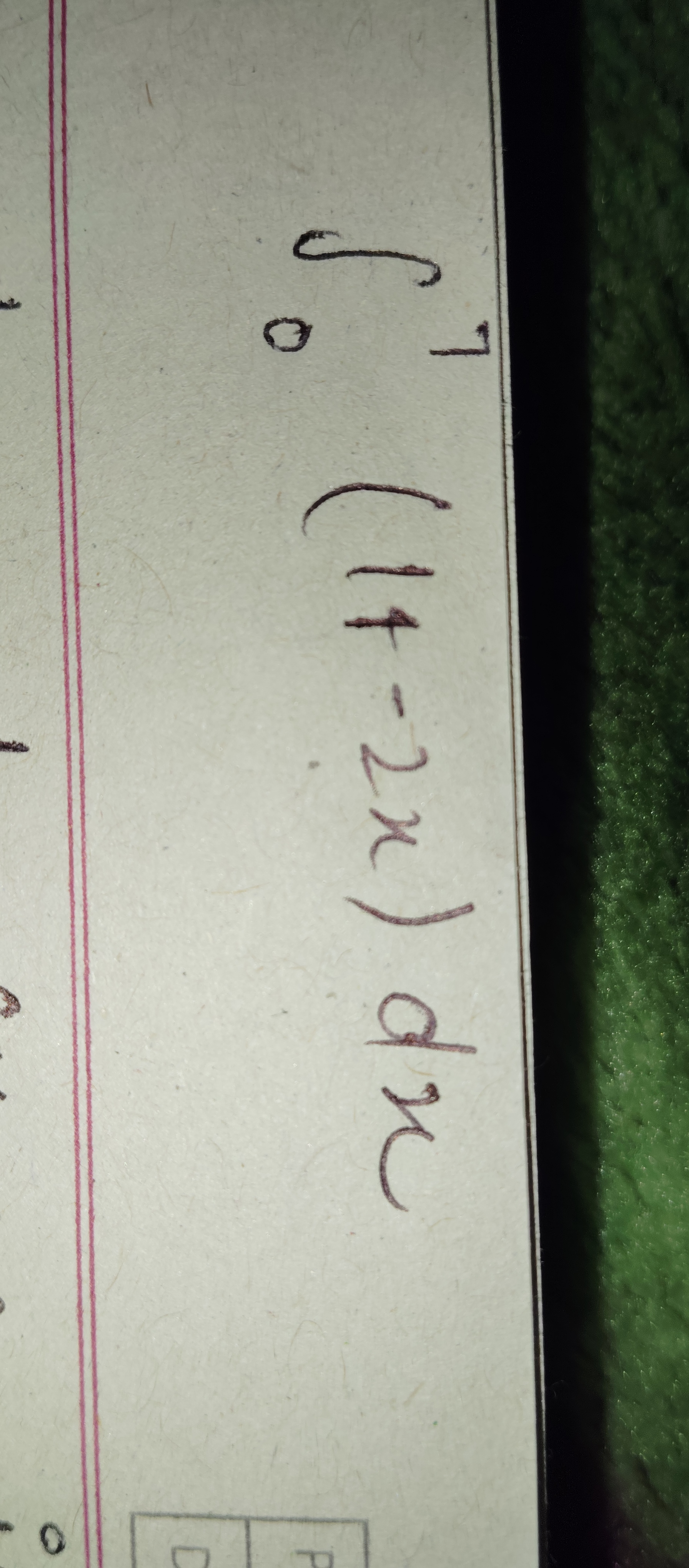∫ (1 + 2x) dx from 0 to 1

Understand the Problem
The question is asking to evaluate the definite integral of the function (1 + 2x) from 0 to 1 with respect to x. The goal is to find the area under the curve of this function within the specified limits.
Answer
The value of the definite integral is \(2\).
Answer for screen readers
The value of the definite integral is (2).
Steps to Solve
- Identify the integral to evaluate
We are given the integral $$\int_0^1 (1 + 2x) , dx$$.
- Find the antiderivative
To evaluate this integral, we need to find the antiderivative of the function (1 + 2x).
The antiderivative is calculated as follows:
- The antiderivative of (1) is (x).
- The antiderivative of (2x) is (x^2).
Thus, the combined result is: $$\int (1 + 2x) , dx = x + x^2 + C$$ (where (C) is the constant of integration).
- Evaluate the definite integral
Now, we apply the limits from 0 to 1: $$\left[ x + x^2 \right]_0^1 = \left(1 + 1^2\right) - \left(0 + 0^2\right)$$
Simplifying this gives: $$= (1 + 1) - (0 + 0) = 2 - 0 = 2$$
The value of the definite integral is (2).
More Information
The definite integral represents the area under the curve of the function (1 + 2x) from (x=0) to (x=1). In this case, the area calculated is (2), which illustrates how the function behaves over the interval.
Tips
- Forgetting to apply limits: It's essential to evaluate the antiderivative at both limits before subtracting.
- Incorrect antiderivative calculation: Double-check the derivation of the antiderivative for any arithmetic errors.
AI-generated content may contain errors. Please verify critical information